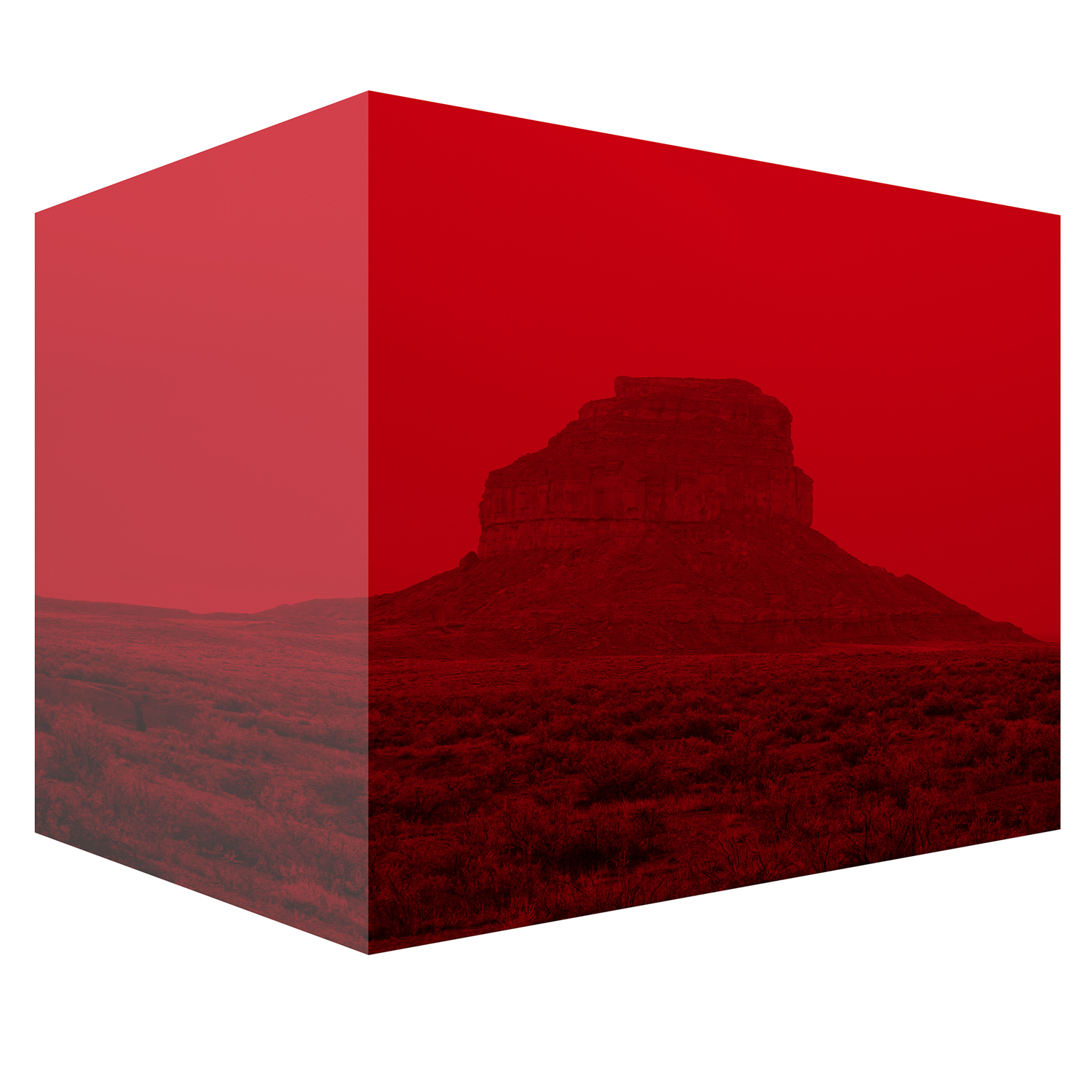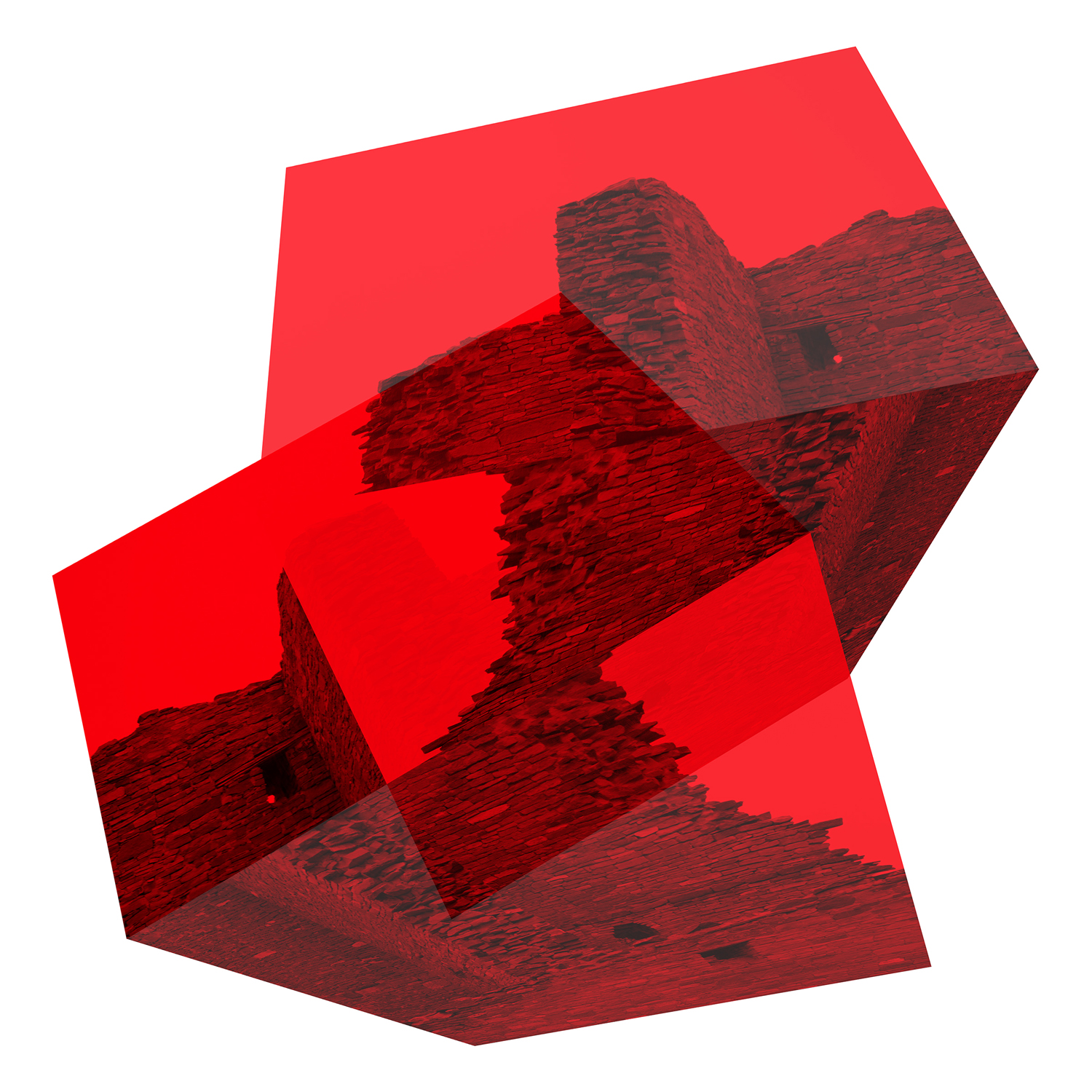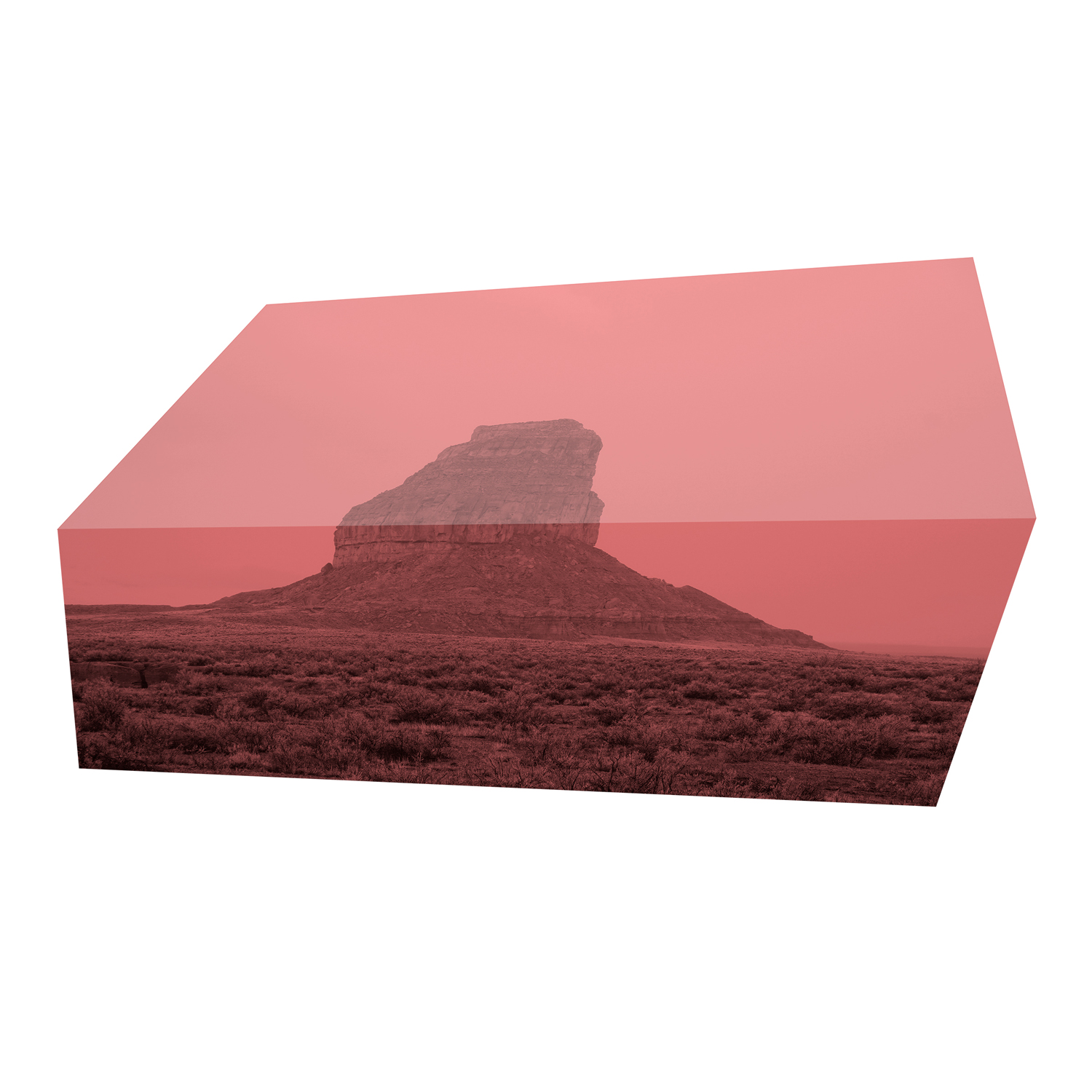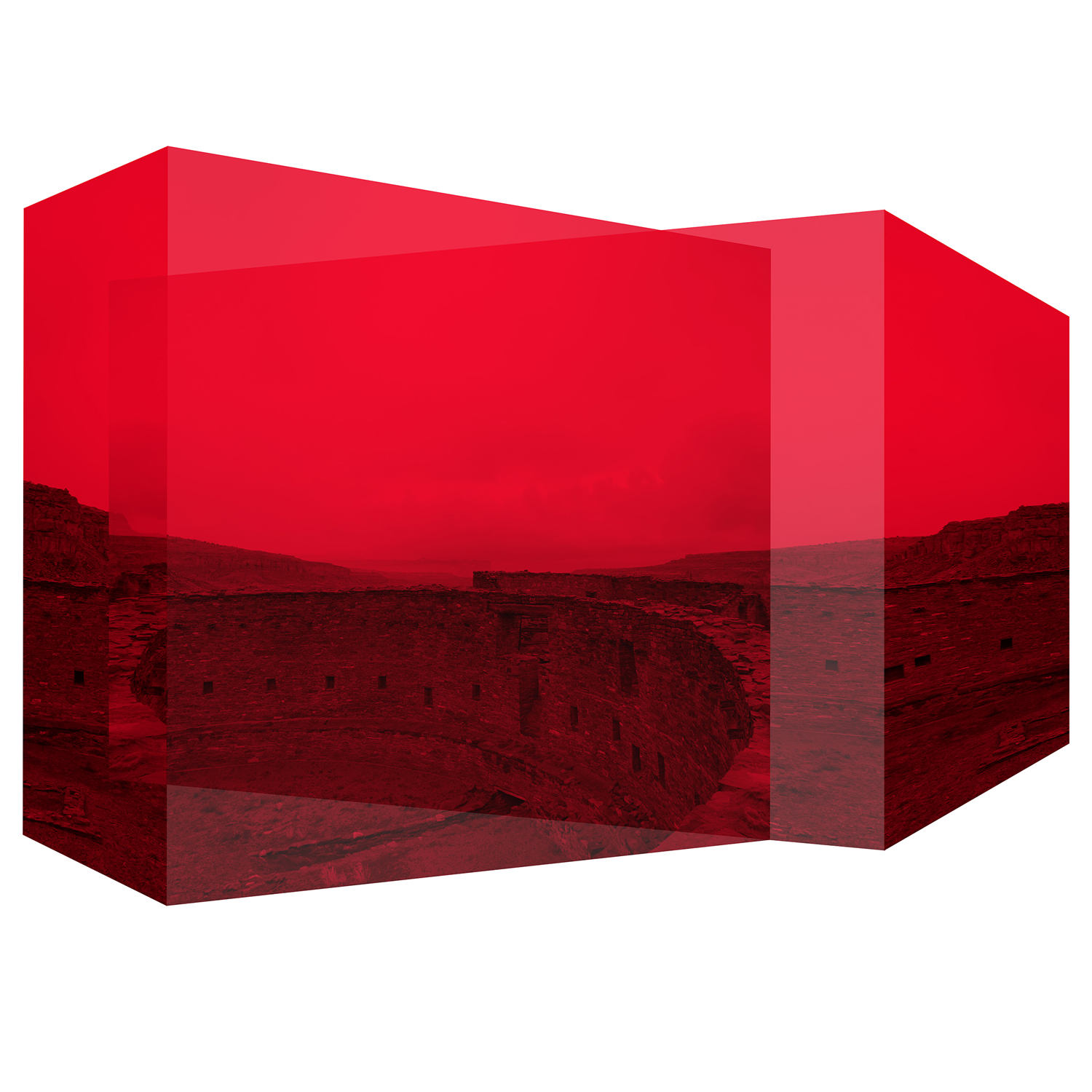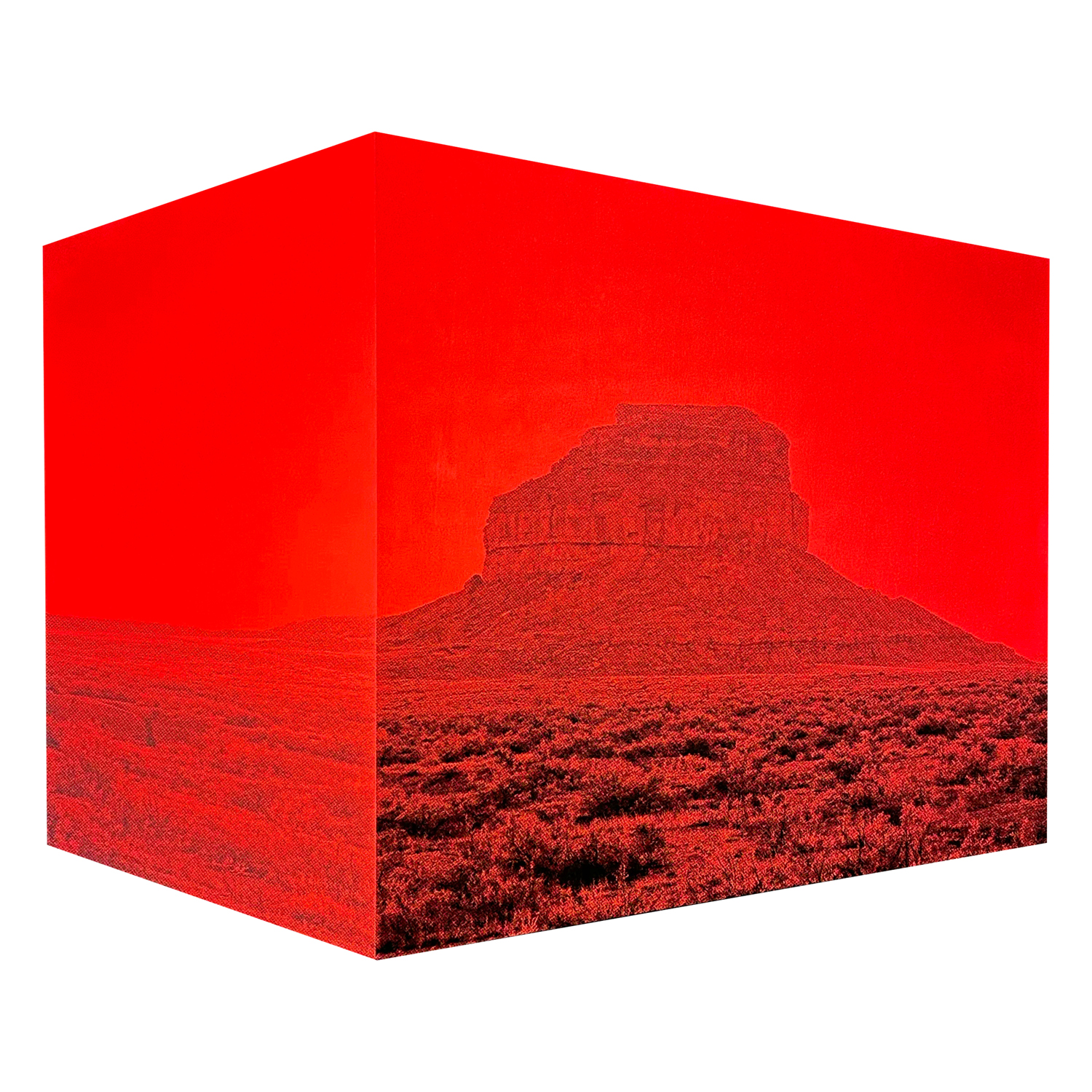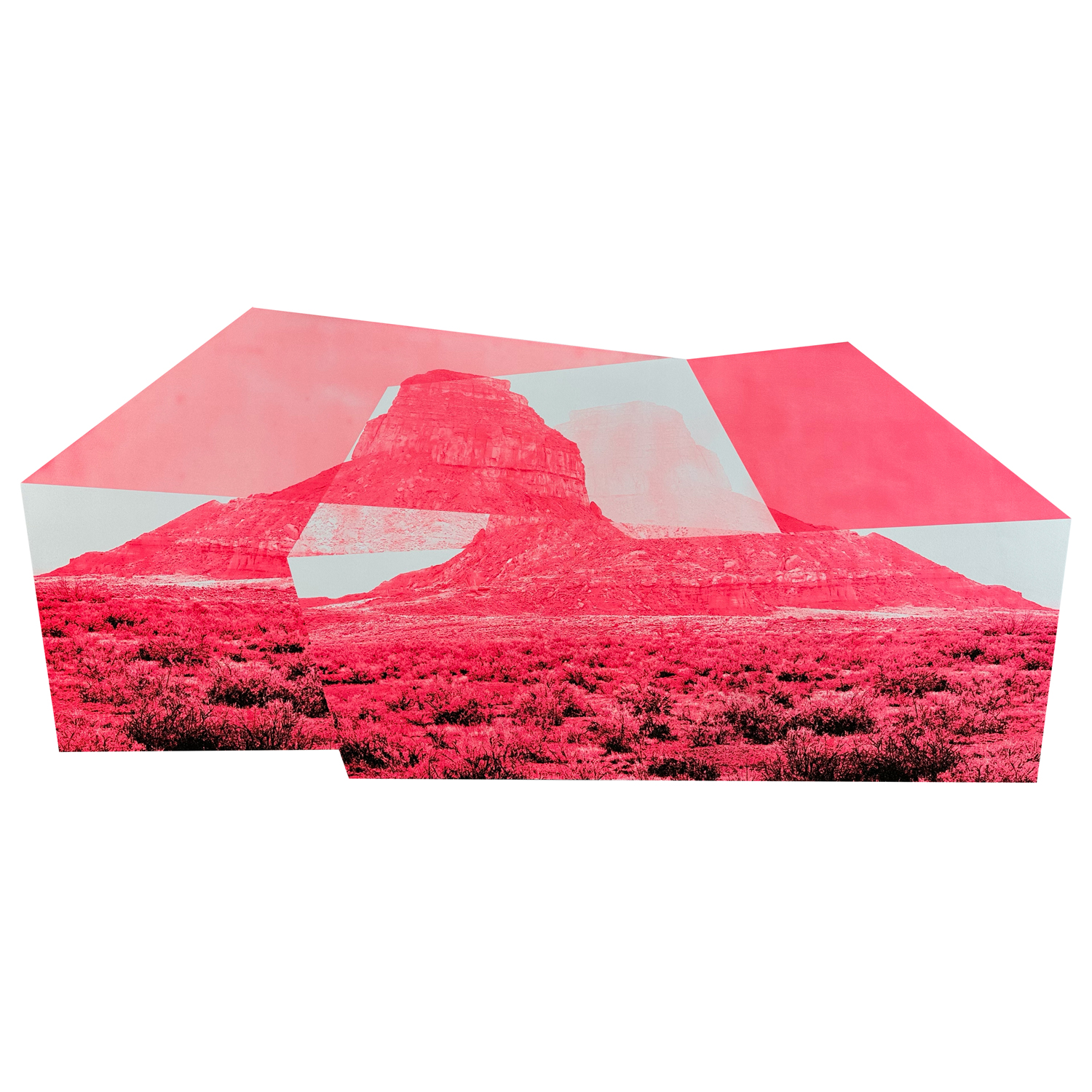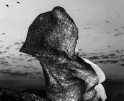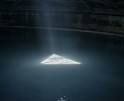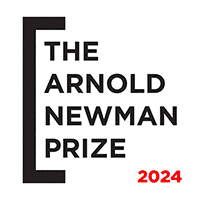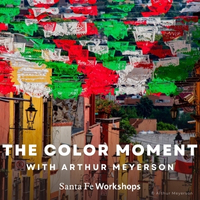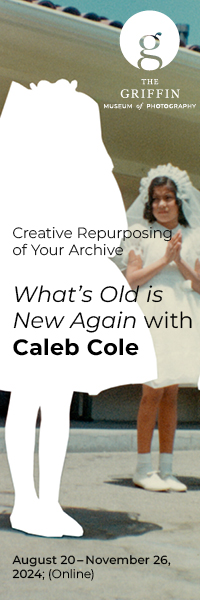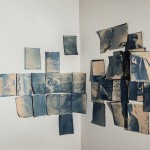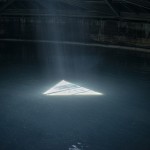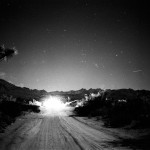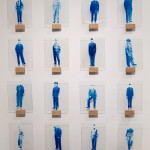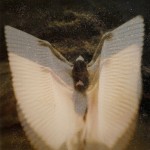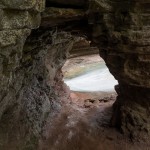Native American Heritage Week: Michael Namingha
Today we would like to introduce you to the work of Michael Namingha. Michael is an Ohkway Owingeh and Hopi artist, whose versatility combines new and old techniques to create a commentary on the rapidly changing landscape of the American West.
Michael’s works contain images with abstracted compositions, often incorporating color psychology and skewed perspectives to convey a larger message about surrounding environmental issues.
The artist’s photography-based Chaco series began in 2020. It is based on his research on oil and natural gas extraction occurring in the northwest corner of New Mexico. The extraction sites are located near the 1,000-year-old Chaco Canyon, a place sacred to the Hopi and Puebloan people of Arizona and New Mexico. In 2014 NASA discovered the largest methane gas cloud in North America sits over this region. The Environmental Defense Fund has estimated oil and gas emissions in New Mexico to exceed 1.1 million metric tons per year. On satellite images this cloud appears red, pink, yellow, and orange. Namingha manipulated the sky in his photographs to represent the colors of the methane gas cloud. The images he composed provide the viewer with an abstracted composition. The pieces are digital chromogenic prints face-mounted to shaped Plexiglas. The shaped aspect of his compositions creates a three-dimensional effect out of a two-dimensional object, removing photography from the confines of a rectangle or a square – and moving the work beyond a static frame. Michael’s work is currently on view at Minneapolis Institute of Art (Mia), In Our Hands: Native Photography, 1890 to Now, on view now – January 14, 2024, The Metropolitan Museum of Art, Grounded in Clay, now – January 24, 2024, and Surreal Futures, The Max Ernst Museum, now – January 28, 2024.
Website: www.michaelnamingha.com
My photography-based Chaco series began in 2020. It is based on my research on oil and natural gas extraction occurring in the northwest corner of New Mexico. The extraction sites are located near the 1,000-year-old Chaco Canyon, a place sacred to the Hopi and Puebloan people of Arizona and New Mexico. In 2014 NASA discovered the largest methane gas cloud in North America sits over this region. The Environmental Defense Fund has estimated oil and gas emissions in New Mexico to exceed 1.1 million metric tons per year. On satellite images this cloud appears red, pink, yellow, and orange. I manipulated the sky in my photographs to represent the colors of the methane gas cloud. The images I composed provide the viewer with an abstracted composition. The pieces are digital chromogenic prints face-mounted to shaped Plexiglas. The shaped aspect of my compositions creates a three-dimensional effect out of a two-dimensional object, removing photography from the confines of a rectangle or a square. – Michael Namingha
Ohkway Owingeh and Hopi artist, Michael Namingha (he/him), is a versatile photographer who combines new and old techniques to create a commentary on the rapidly changing landscape of the American West.
Michael’s works contain images with abstracted compositions, often incorporating color psychology and skewed perspectives to convey a larger message about surrounding environmental issues.
Instagram: @Mnamingha
X (Twitter): MNamingha
Posts on Lenscratch may not be reproduced without the permission of the Lenscratch staff and the photographer.
Recommended
-
The 2024 Lenscratch 3rd Place Student Prize Winner: Mehrdad MirzaieJuly 24th, 2024
-
One Year Later: Nykelle DeVivoJuly 19th, 2024
-
One Year Later: Anna RottyJuly 18th, 2024
-
The Paula Riff Award: Minwoo LeeJuly 17th, 2024
-
Anastasia Sierra and Carrie Usmar: Talking MotherhoodJuly 16th, 2024

